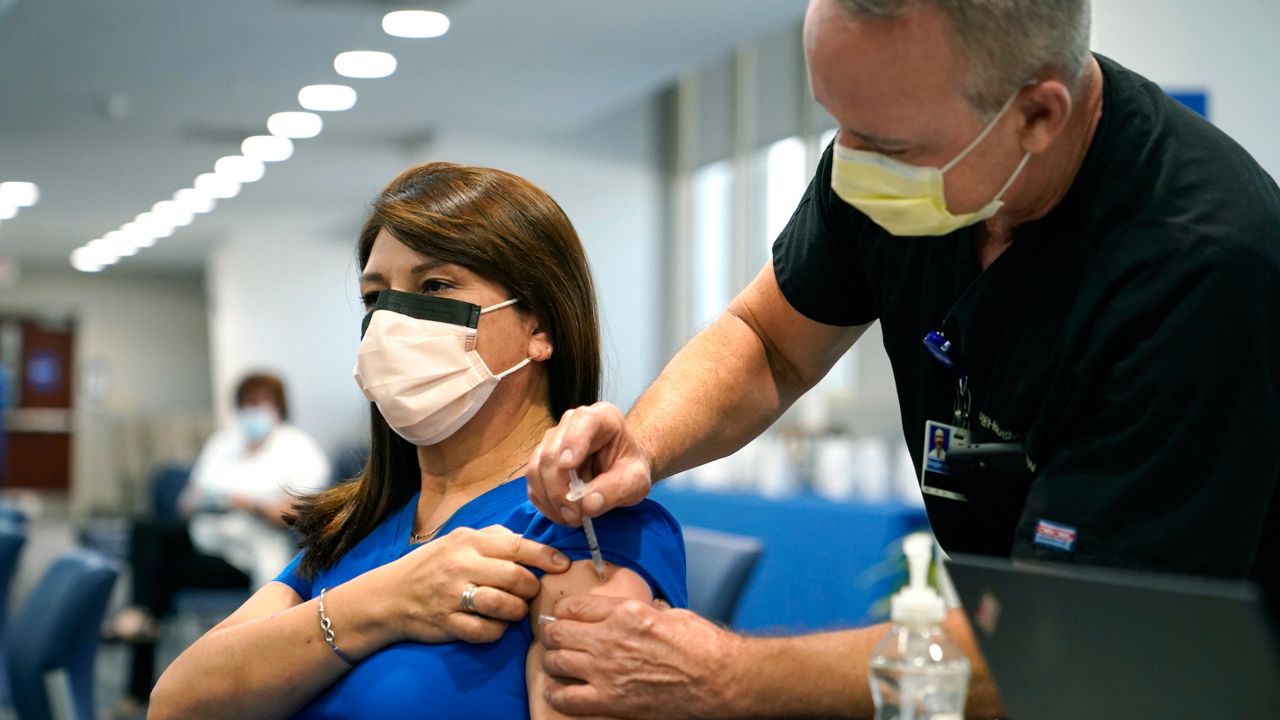RALEIGH, N.C. (AP) — The spread of COVID-19 has dropped substantially in recent weeks, according to data released Tuesday by the North Carolina Department of Health and Human Services.
What You Need To Know
- For the first time since mid-July, the state reported two consecutive days of new daily cases below 1,500
- K-12 schools have also seen a drop in cases associated with clusters for five straight weeks
- State health officials continue to urge people to get vaccinated
For the first time since mid-July, the state reported two consecutive days of new daily cases below 1,500. Over the past two weeks, the rolling average number of daily new cases has decreased by more than 35%. Hospitalizations, which have declined by 37% in the last 14 days, are at their lowest levels in nearly three months.
Health officials reported on Monday that K-12 schools, which host kids under 12 who cannot yet be vaccinated, have also seen a drop in cases associated with clusters for five straight weeks.
“North Carolina’s key metrics show high but declining levels of COVID-19 spread,” health officials wrote in the report.
The share of COVID-19 tests coming back positive over the past week has ranged from 4% to 6%, down substantially from the 8% to 10% daily positivity rate reported a month ago.
Spread of the more contagious variant along with low vaccination rates in many of North Carolina’s 100 counties had fueled substantial spread from late July to mid-September.
State health officials continue to urge people to get vaccinated. On Monday, they touted the success small financial perks had in boosting vaccination numbers over the summer, though the state’s cash card program is no longer available to residents who want to come in for a first shot.
Though more data is still coming in, only about 21,000 people came in for their first COVID-19 shot last week, which represents the lowest weekly count since the first week of a sluggish December 2020 vaccine roll-out.
North Carolina is in the middle of the pack in the nation on its share of vaccinated residents, according to data from the U.S. Centers for Disease Control and Prevention. The numbers show North Carolina with the 16th lowest share of residents 12 and older who have been fully vaccinated. Even so, the CDC ranks North Carolina with the 14th lowest death rate per 100,000 residents.
The state’s latest COVID surveillance report notes unvaccinated North Carolinians are more than four times as likely get the virus and nearly 20 times more likely to die of COVID-19 than vaccinated people.
“If you aren’t yet vaccinated, don’t wait,” NCDHHS Secretary Mandy Cohen said in a news release last week. “We are seeing this virus attack those who are unvaccinated at a much higher rate than those who are vaccinated.”
Pfizer, Moderna and Johnson & Johnson COVID-19 boosters are now available to more North Carolinians who have already been vaccinated.
North Carolina public health officials are also preparing distribute the first wave of Pfizer COVID-19 vaccines once the federal government approves them for children aged 5 to 11. A panel of U.S. health advisers on Tuesday endorsed kid-size doses of the vaccine, moving North Carolina and other states one step closer to beginning vaccinations in younger children.
RELATED: COVID-19 vaccines for kids could soon be on the way. What does that mean?
The state expects to receive 124,500 doses, which would then be made available to 231 providers across the state, though health officials noted vaccine distribution counts are subject to change and some providers may decline allocations.
The Mecklenburg County Health Department is expected to get the largest share of vaccines at 13,500, followed by 8,100 set to go to Wake County Human Services.
Roughly 900,000 North Carolinians fall within the qualifying age group, according to data from the U.S. Centers for Disease Control and Prevention.




